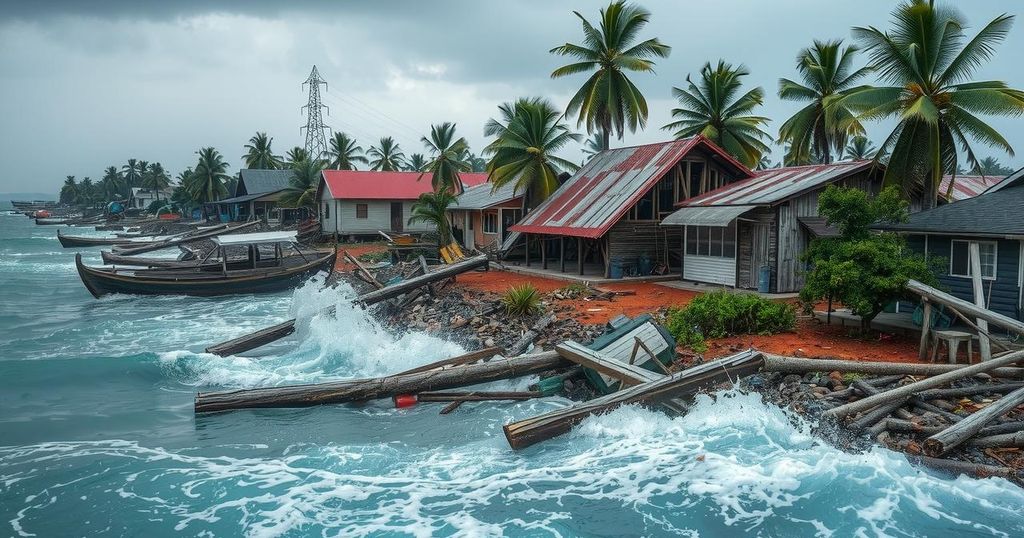Cyclone Chido: Catastrophic Impact in Mayotte and Mozambique

Cyclone Chido struck Mayotte and Mozambique, leading to widespread destruction and a rising death toll. The storm, linked to climate change, has left millions at risk and hindered rescue efforts due to damaged infrastructure and lack of communication. Humanitarian aid is being mobilized amidst the challenges posed by undocumented residents in the affected regions.
Cyclone Chido made a devastating impact on the island of Mayotte on December 15, resulting in extensive destruction, particularly in informal housing areas, and severely affecting infrastructure such as the local airport. Climate experts have attributed this cyclone, in part, to rising temperatures in the Indian Ocean that are linked to climate change. The aftermath has left citizens without electricity, water, or communication, further complicating rescue operations amidst the rising death toll, which is feared to be in the thousands. Following its landfall in Mayotte, Cyclone Chido moved towards Mozambique, where it continued to wreak havoc. The United Nations Office for the Coordination of Humanitarian Affairs (UN OCHA) has issued a warning that up to 1.7 million individuals are now at risk due to the disaster. In response, European Commission President Ursula von der Leyen and the World Health Organization (WHO) have committed to providing humanitarian assistance, although the presence of 100,000 undocumented residents in Mayotte complicates the comprehensive assessment of the damage.
The occurrence of Cyclone Chido aligns with alarming trends in severe weather events, which scientists increasingly associate with climate change. The Indian Ocean, where the cyclone formed, has been exhibiting warmer waters, creating conditions conducive to significant storms. The aftermath of such disasters often results in infrastructural damage, loss of life, and significant challenges for humanitarian efforts, particularly in regions with unstable governance or high levels of undocumented residents. Understanding these dynamics is critical for addressing both immediate relief needs and long-term strategies for climate resilience.
In summary, Cyclone Chido has caused unprecedented destruction in both Mayotte and Mozambique, with thousands feared dead and millions at risk. The complexities surrounding the region’s undocumented population and the obliteration of vital infrastructure have hampered response efforts. Nevertheless, international aid is being mobilized, although significant challenges remain. These events highlight the urgent need for enhanced climate action to mitigate future disasters.
Original Source: m.economictimes.com








